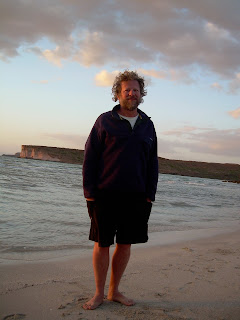
We survived the journey home to Maine. Below is a letter I've written to the work crews of incredible friends and family here who helped us land softly and beautifully (despite the nor'easter like conditions that are rattling our windows and shaking our house as I type). This morning I organized our gigantic pile of mail and gleaned a huge basket of fan mail ready for Phil to open upon waking. It was wonderful to watch him open each treasure.
"Dear generous friends and family --
Last night Phil and I made it home after traveling cross-country from the desert of Arizona to salty and wild Maine. The trip went quite well despite my natural anxiety over Phil's health condition and my being so pregnant (not to mention the "hurricane like winds and weather") we’re experiencing in Maine. My step-dad Larry and Sarah were waiting for us at the airport and brought us home to our colorful, clean, cozy, and much-loved apartment. I honestly cannot thank each of you enough.
Please know that a huge weight of tension was immediately shed from my shoulders as we walked in these doors. I also haven't seen Phil look this happy since before the stroke. We are truly blessed to live in a community where people graciously offer their skills, time, and talents to make these kinds of things happen.
I like to think of this whole situation as "virtual nesting". Here's an example: I'm in AZ thinking, hmmm...we could really use some additional storage with the baby on the way? My sister Lisa in NY finds an armoire on Craig's list in ME, my friend Sarah coordinates buying it and locating it, my step-dad Larry from CO and my co-worker/friend Ken from Bar Lola rent a van, pick up this HUGE beautiful piece of furniture, haul it up the three flights of stairs (god know how?), and place it in our apartment. Viola! Amazing. All expectant mothers should try this (just kidding…)
I know I'll never fully grasp how much actually went into pulling this off. Please know I am aware of every last sweet bouquet of flowers scattered around, paintbrush strokes, sessions of cleaning behind our bookshelves, scrubbing our floors, re-decorating our place in cozy ways, donation of furniture, and the quiche in the oven awaiting our return. To be perfectly honest we both broke down and cried last night and slept like babies. It was incredible. I didn't realize how much I missed home.
There is so much unknown in our lives. Right now, having a cozy nest to lay down our bones and a space to keep healing and growing this baby is one of the best gifts we could have been given. Thank you from the bottom of our hearts.
Love,
Lara (and Phil and baby too...I'm sure)."









